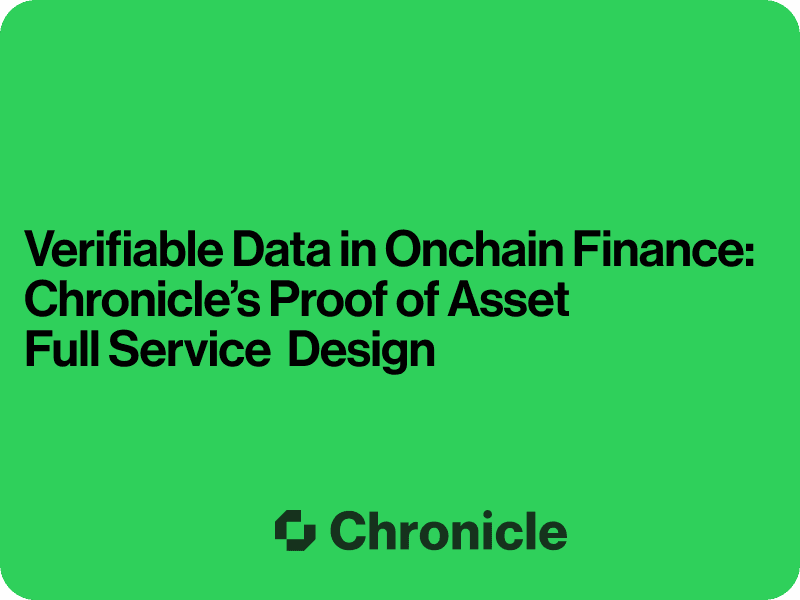“Toll paid, we kiss - but dissension looms, maybe diss?”
Wondering how to decode this message? Welcome to the whimsical world of Chronicle & MakerDAO, where DeFi meets creative and playful jargon. Today’s mission: unraveling the mysterious and enchanting terms that make up the ‘Daiwanese language’ (the unofficial name for MakerDAO jargon).
MakerDAO invented a unique lexicon for describing DAI’s implementation to avoid financial term debates and streamline the code. This precise language clarifies structure, reduces verbosity, and provides insights that would be less accessible if standard financial language were used.
You might ask yourself, what is the connection between Daiwanese and Chronicle? Chronicle’s Oracle stack was born within Maker in 2017 as part of the engineering efforts to build DAI. However, in September 2023, it spun out from MakerDAO and soft-launched to the public. Many things changed but the roots of our engineering language remained the same.
In the following section, we will cover some key terms relevant to the Chronicle ecosystem. Some of these terms are inherited from Maker’s Daiwanese, while others are specific to Chronicle.
Key Terms in Daiwanese: A Glossary
Kiss and Toll
When we kiss an address kiss(address), it means that the address has been whitelisted and it is now able to call toll(ed) functions. Initially, no address is kiss(ed). On Chronicle, read is a toll(ed) function, meaning that one needs to be authorized to start using data from an Oracle.
The buds mapping stores whether an address has been tolled or not. Once an address gets kissed, then it gets saved to the _budsTouched array.
So if you see an announcement about ‘Example Protocol’ being kissed, this means the protocol has integrated a Chronicle Oracle.
Diss
There is also the reverse of kiss(address), which is diss(address). When an address gets dissed, it gets removed from the whitelist, and the address is no longer able to call toll(ed) functions.
Scribe
When you hear Scribe, you might picture a person who made copies of manuscripts before the invention of automatic printing. However, Chronicle’s Scribe is quite different. It is the product name for our efficient Schnorr multi-signature-based Oracle that enables gas saving by over 60% on L1s and over 68% on L2s, and enables almost unlimited scaling of Oracle network security and decentralization via validator quantity.
Bar
The next term we look at is bar. It represents the threshold of validators required to update the price of an Oracle. In other words, the bar is the minimum number of validators that need to sign, using the Schnorr signature scheme, for a new price to be accepted by the Oracle. This threshold is always set to be more than 50% of the total number of validators. This can also be referred to as ‘quorum’.
Validator (Feed)
A validator, originally known as a feed, is an entity that fetches prices from various data sources (both on-chain sources like DEXes and off-chain ones like CEXes). It then signs and exchanges this information in a peer-to-peer network. Once the minimum cluster of value collections is gathered (bar), the Oracle can be poked to update to a new value.
Poke
You can think about poking Oracles, similar to poking your friend. It’s your way of saying, “Hey, I want your attention, I would like you to give me the latest price”.
Wat
The wat represents the Oracle’s identifier. This usually refers to different asset pairs (e.g., ETH/USD). However, it can also refer to other designations, such as the DAI Savings Rate (DSR).
Some More Fun Terms to Explore…
These are some of the terms that are most relevant to Chronicle’s architecture, however there are loads of other creatively named terms, functions, variables, and more to discover in the
MakerDAO Glossary.
Here are some of the team’s favorites!
Flip, flap, flop, suck, chop, yank.
Closing Thoughts
This has been a quick overview of the Chronicle jargon. I hope it has helped you better understand the Chronicle ecosystem and its history, and given you tools to navigate Chronicle’s smart contracts. The next time you encounter a term like 'kissed' or 'diss', you'll know exactly what's going on in this fascinating corner of DeFi. Afterall, who doesn’t like a little kiss? Mwah.
To learn more about Chronicle, and see these terms used in practice, check out the
documentation portal.
References







